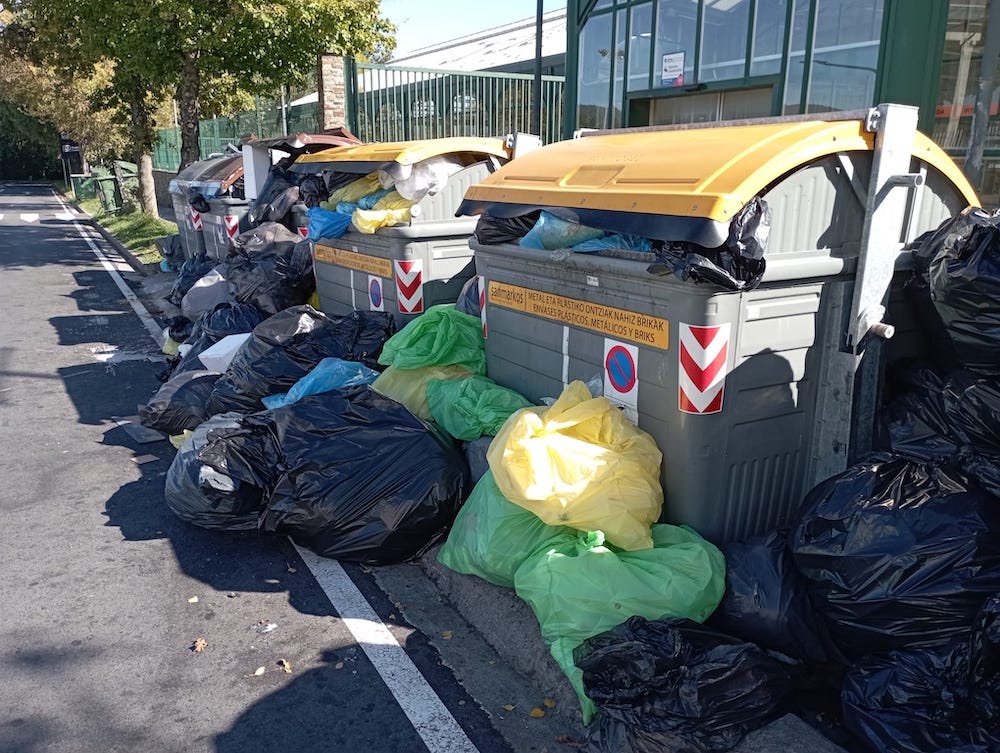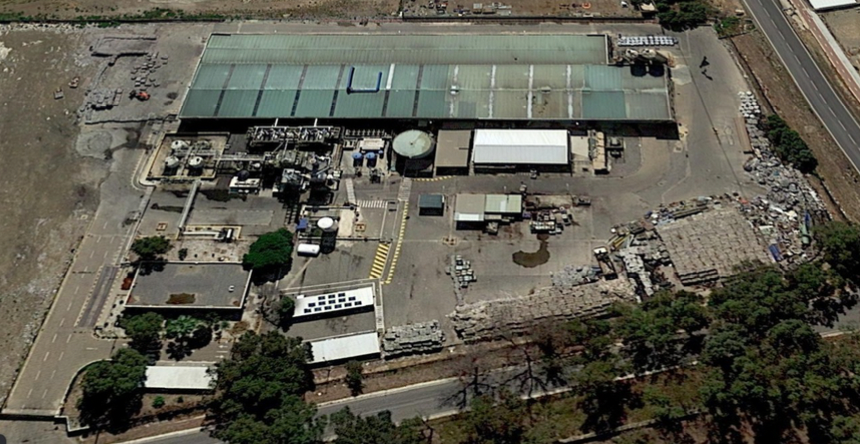Azkoitiko Larke: Why 100% of demolition waste will not be recovered
- The Diario Vasco notes that Lark de Azkoitia "plans to recycle 100% of the waste it receives from construction" and this is reflected in the environmental impact report that the Basque Government has published this week. That is impossible with the machinery that Lark has put forward, and furthermore the Basque Government’s report does not say so.

The Diario Vasco highlighted on 10 April (back in writing): "It plans to recycle or reuse 100% of the rubble collected by the non-hazardous waste recovery plant of the construction of Azkoitia. This is reflected in the report published by the government authorizing the project."
The Basque Government’s environmental impact report does not say so.
This is what the Government ' s report on construction and demolition waste says: "The classification of waste by type of waste will determine the recovery of part of the non-hazardous waste and the resulting product will depend on the material properties, granulometry, moisture and machine prescriptions." He says that "one part" will be valued, in no case 100%.
Below you will find out what the company Larke is going to do with debris that is valued and not valued: "Recovered waste shall be transported to authorised works provided that its use in such works is viable. The remainder of the waste shall be delivered to an authorised operator/valoriser through authorised transporters."
The best are able to recycle 90 percent.
If the company really wants to recycle or reuse 100% of the rubble, as the Basque Journal states, it will need more machinery than it has reported to the Basque Government in the report. A crusher for rent (Trakpactor 320) and a treadmill line are the only ones you mentioned in the report.
Waste from construction and demolition works is not worth 100%. The highest percentage of recovery is obtained by fixed plants, which recycle 90% according to their data and which are the fixed plants of the CAPV. Here you can see the machinery they use, much more complete than Lark has indicated.
The amount that can be recycled by the other mobile plants (Azkoitia’s, for the machine it has presented, so it will be) is very variable depending on the type of debris they have received, although far from 100%.
The City Hall of Donostia-San Sebastián announced at last Thursday’s plenary session that it will increase the waste rate by 26.5% from January 2025, claiming that Waste Law 7/2022 obliges this. Eguzki, for its part, has denounced that the law only applies in terms of costs,... [+]
Recently, the UPV/EHU organised a series of summer courses to address the issue of climate change. The Environment Minister, Asensio, took advantage of the courses to highlight the incinerator’s positive contribution to climate change, which is surprising, since for every tonne... [+]






















